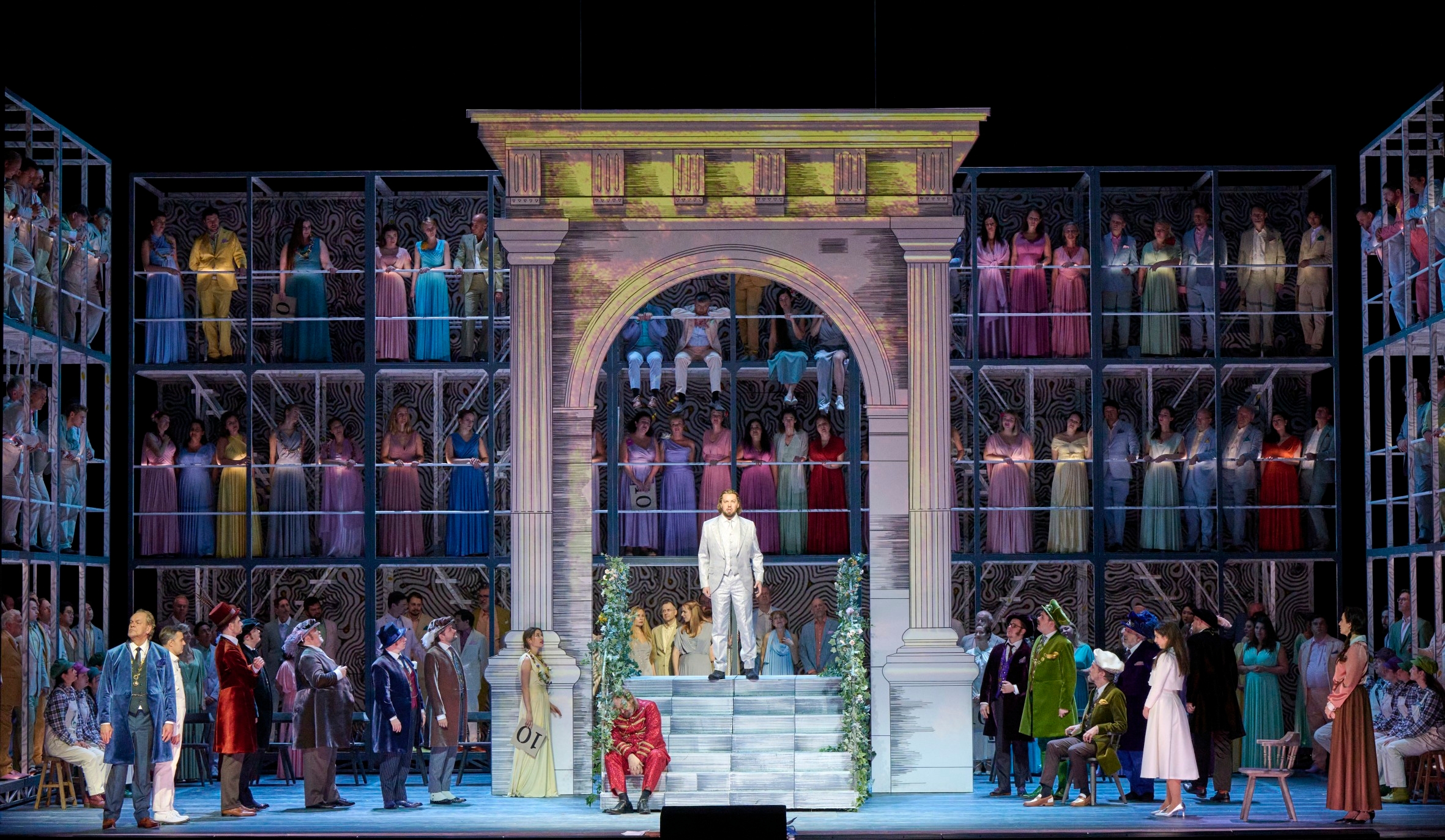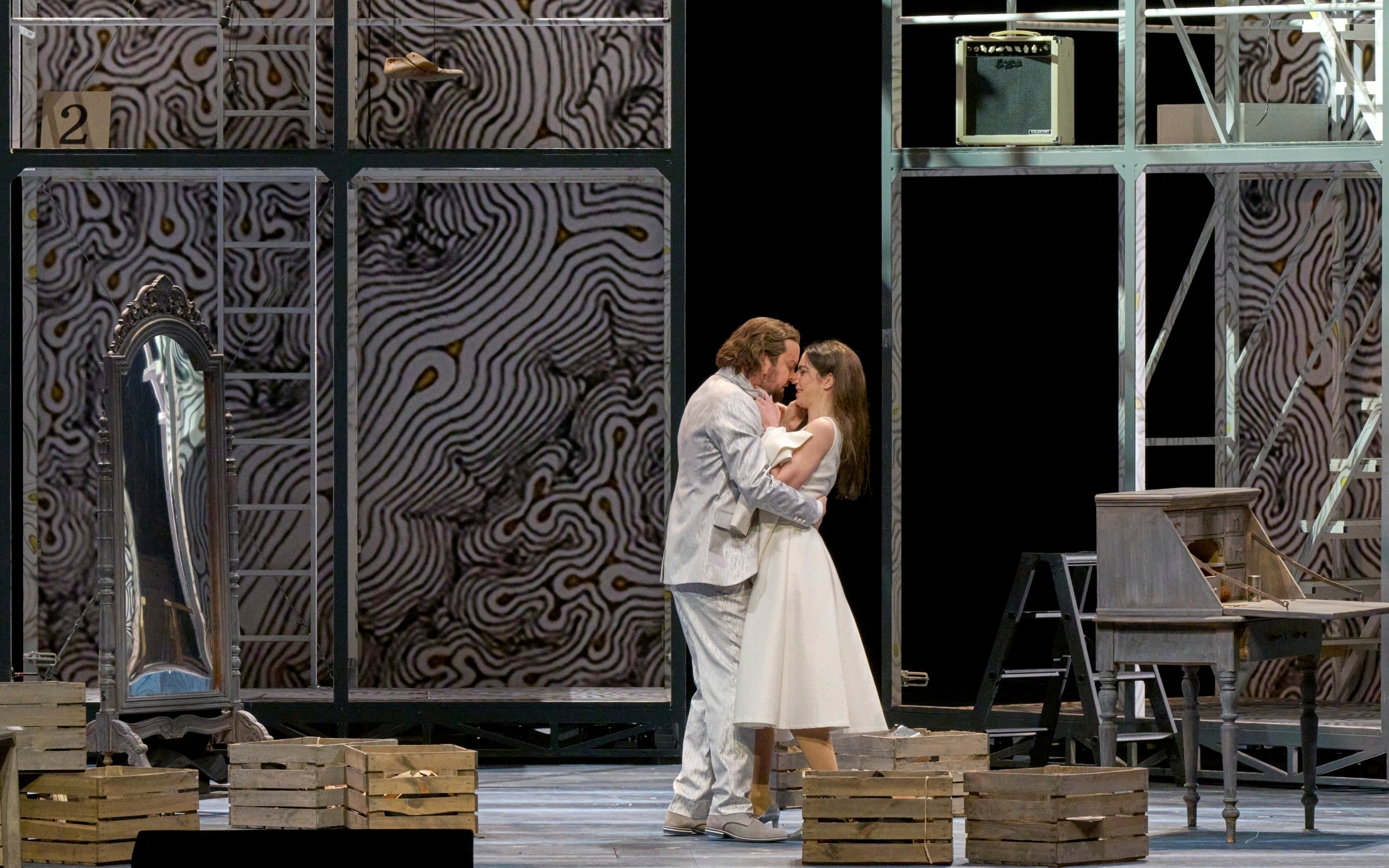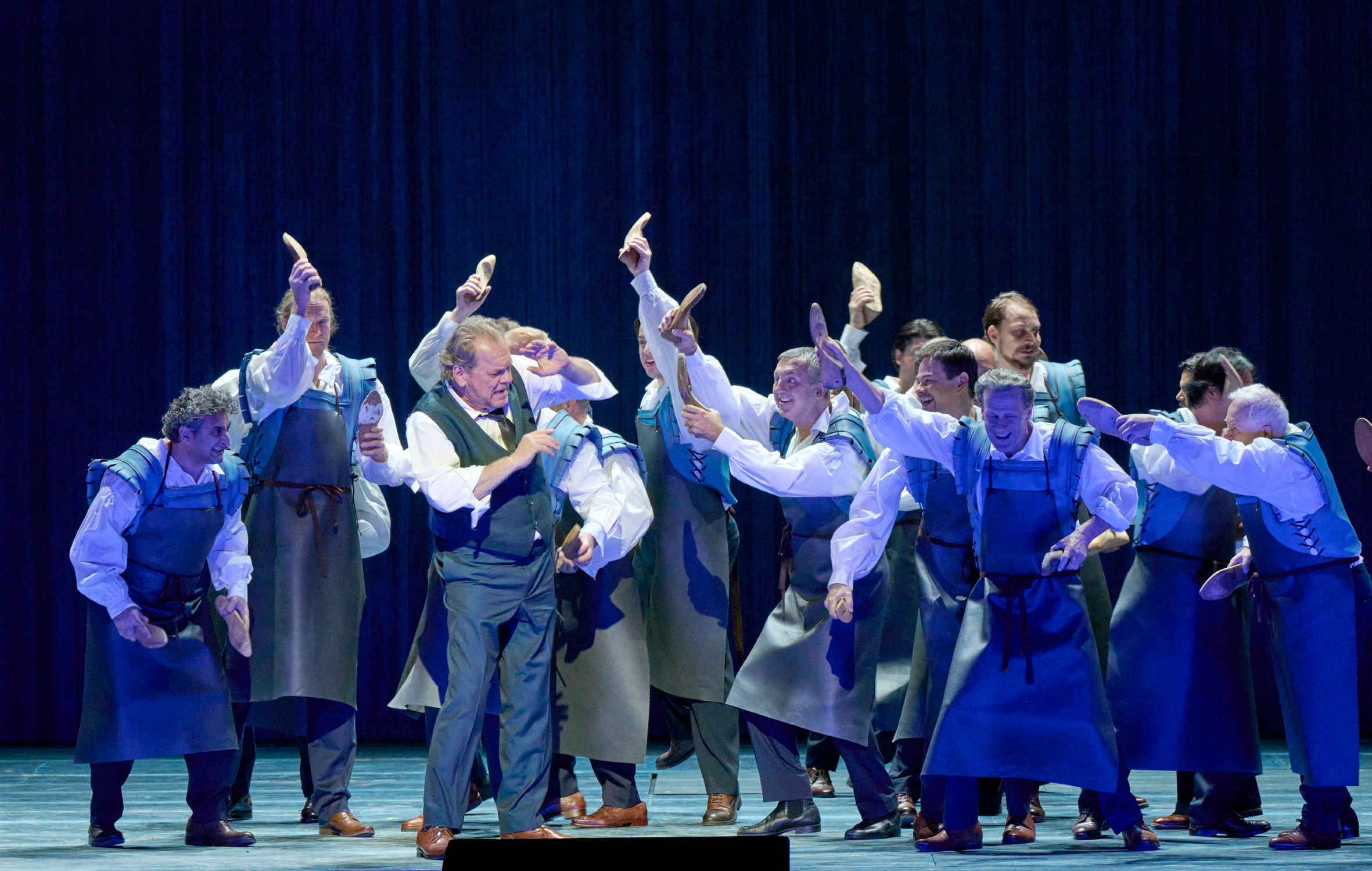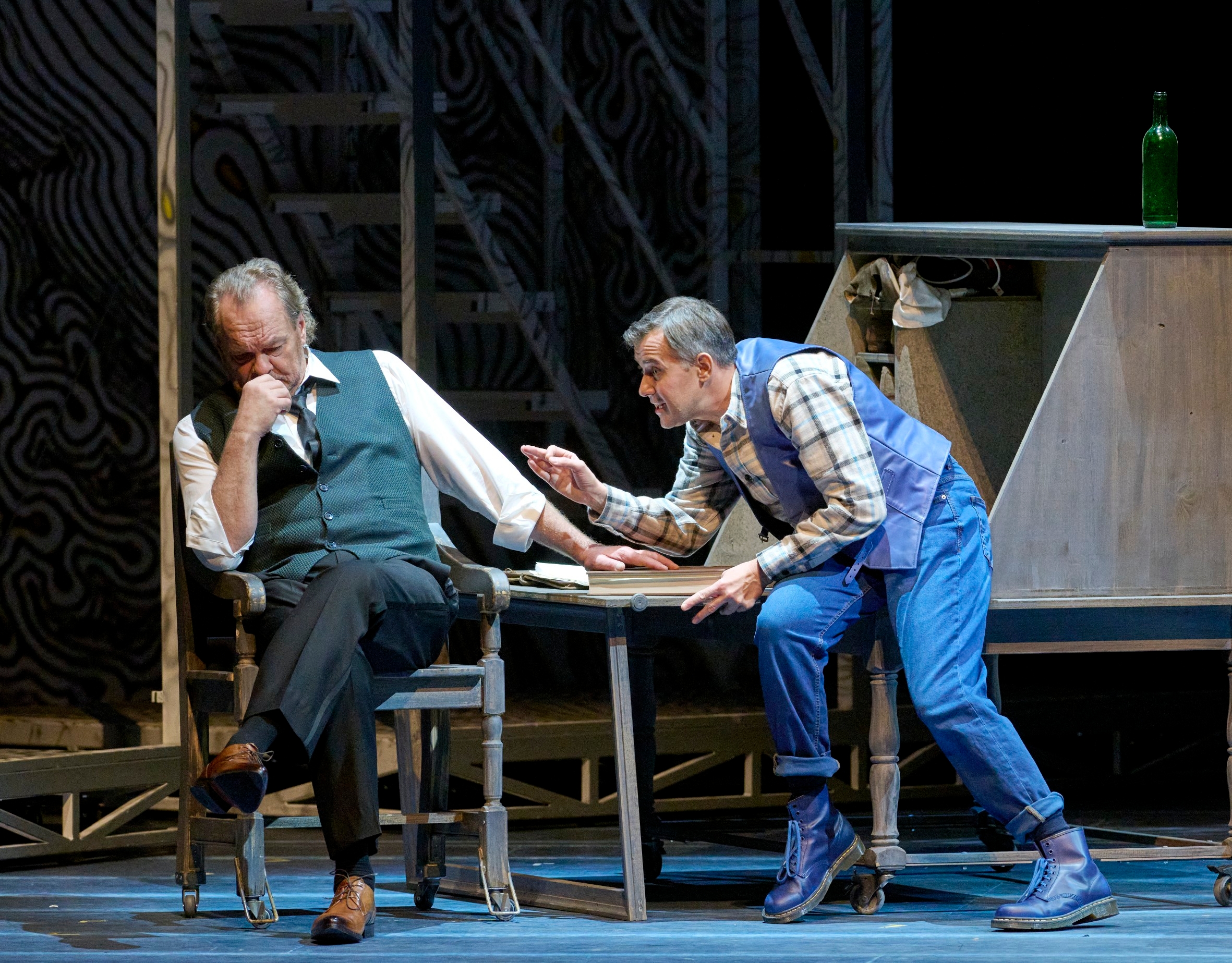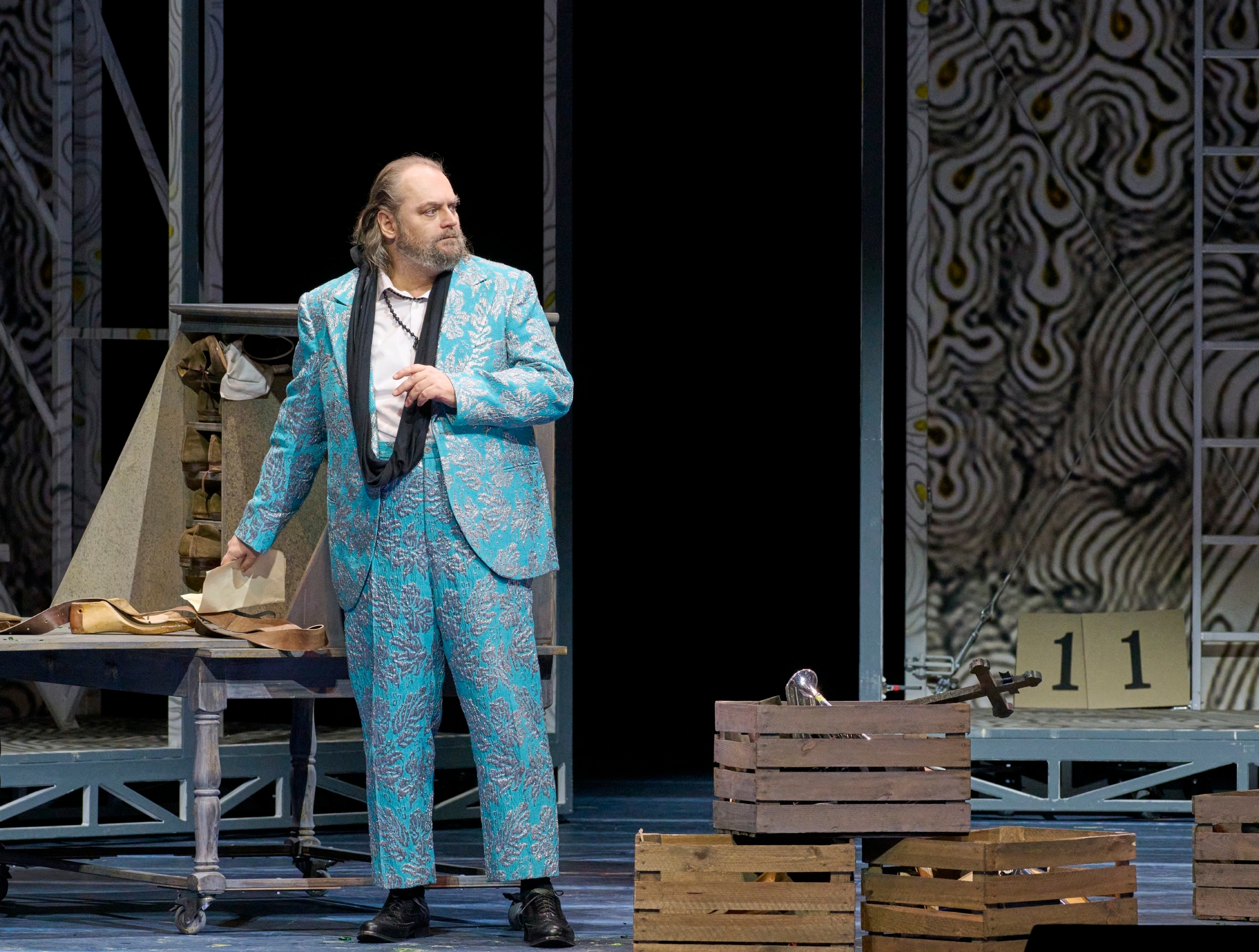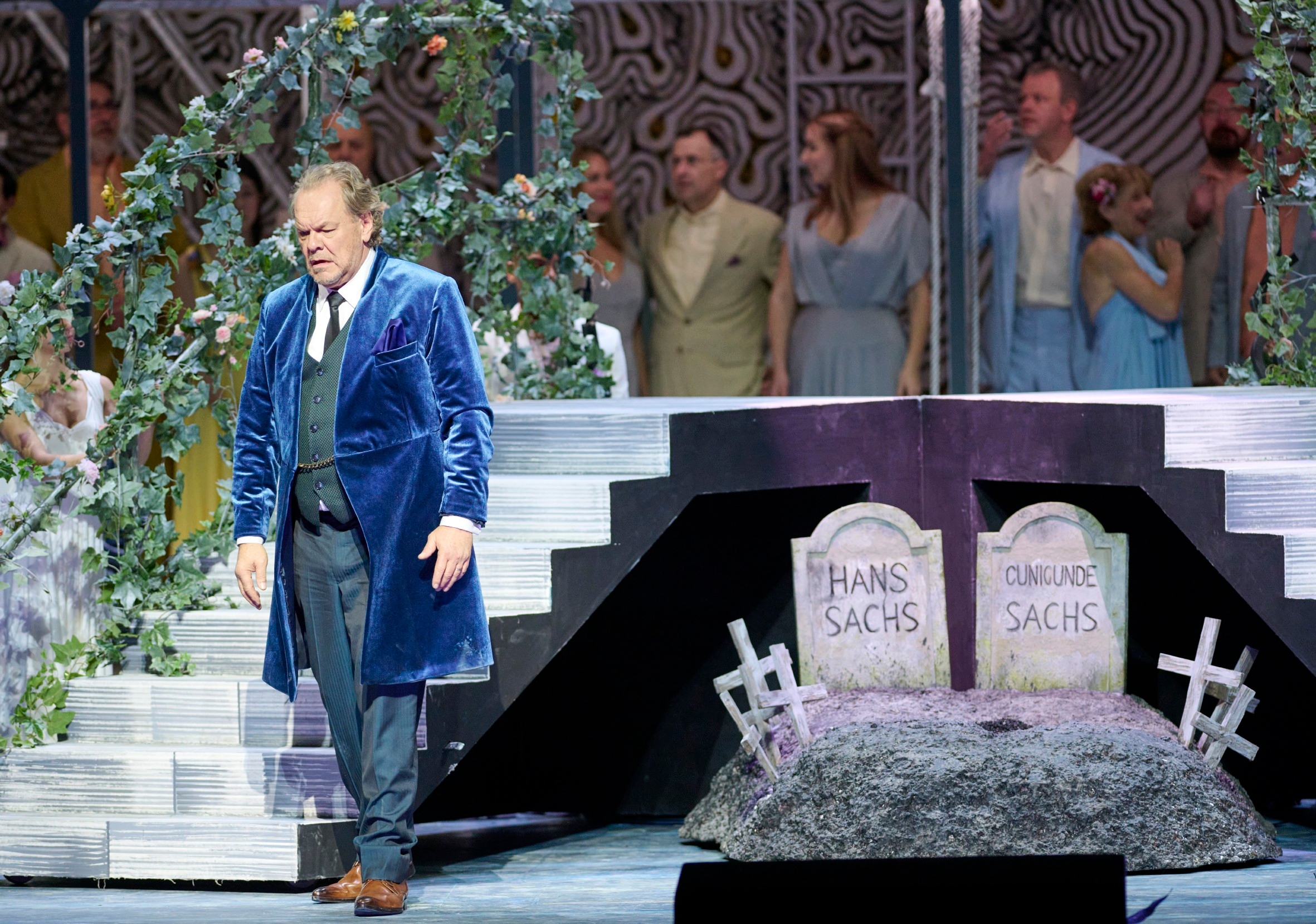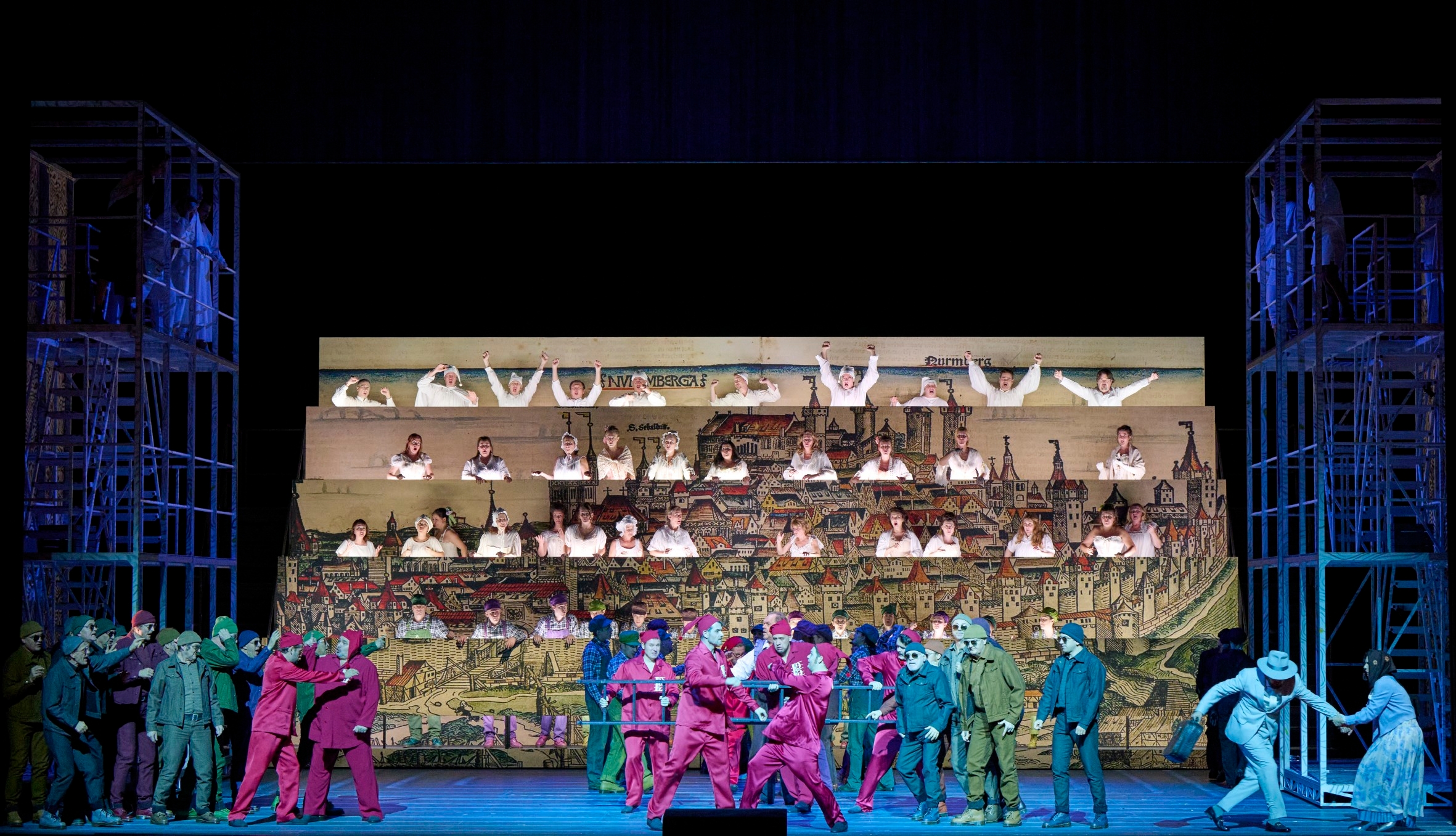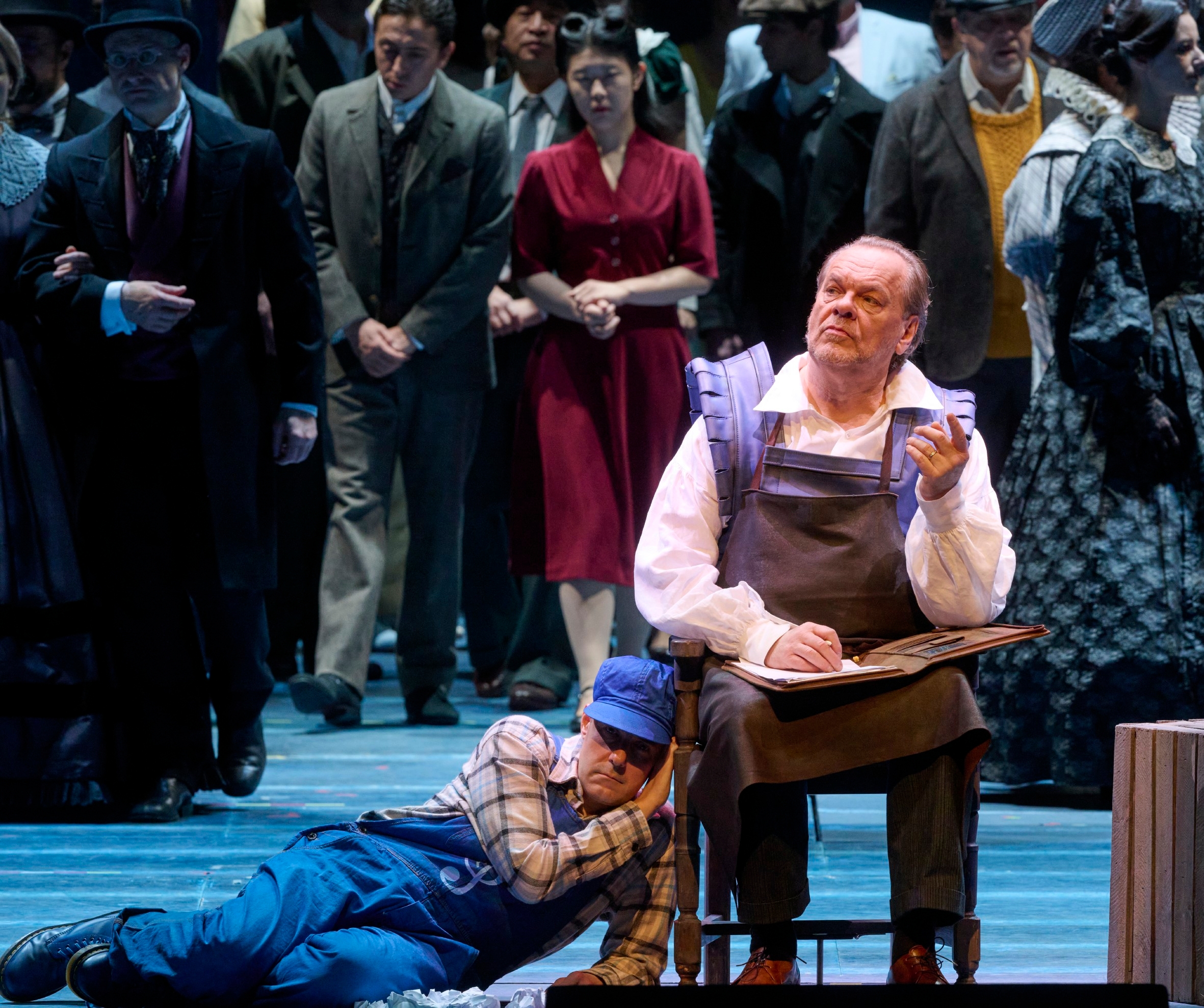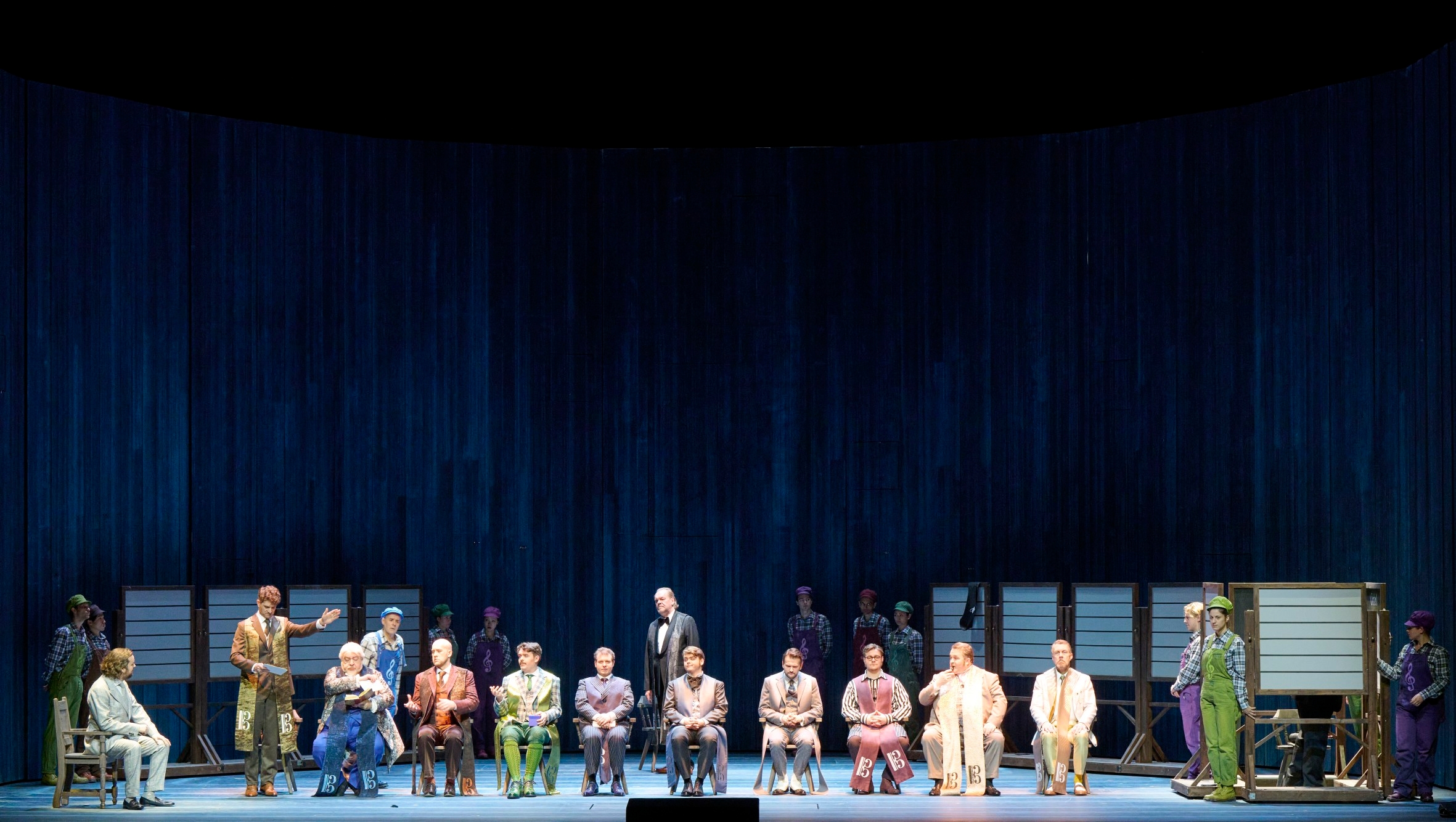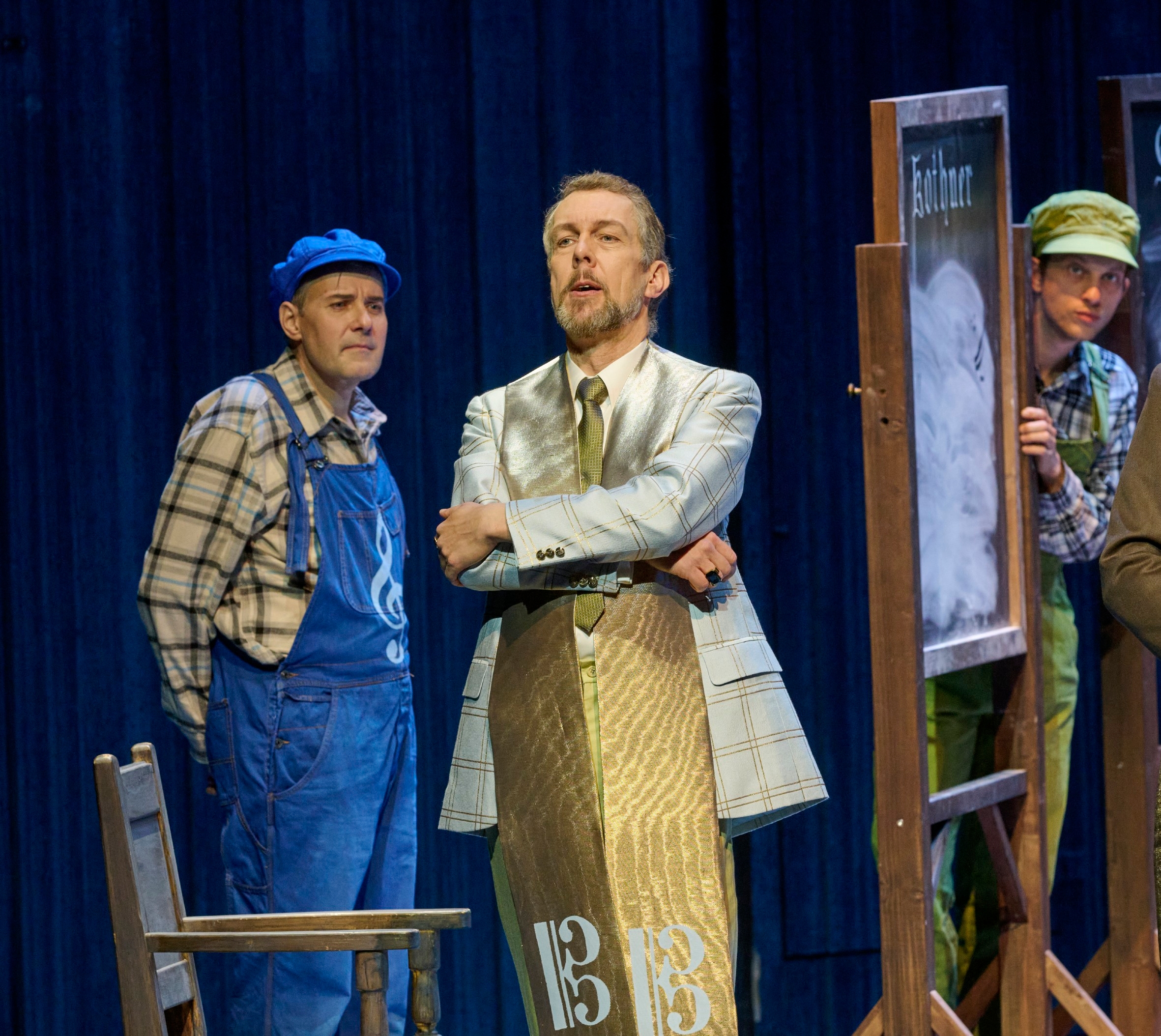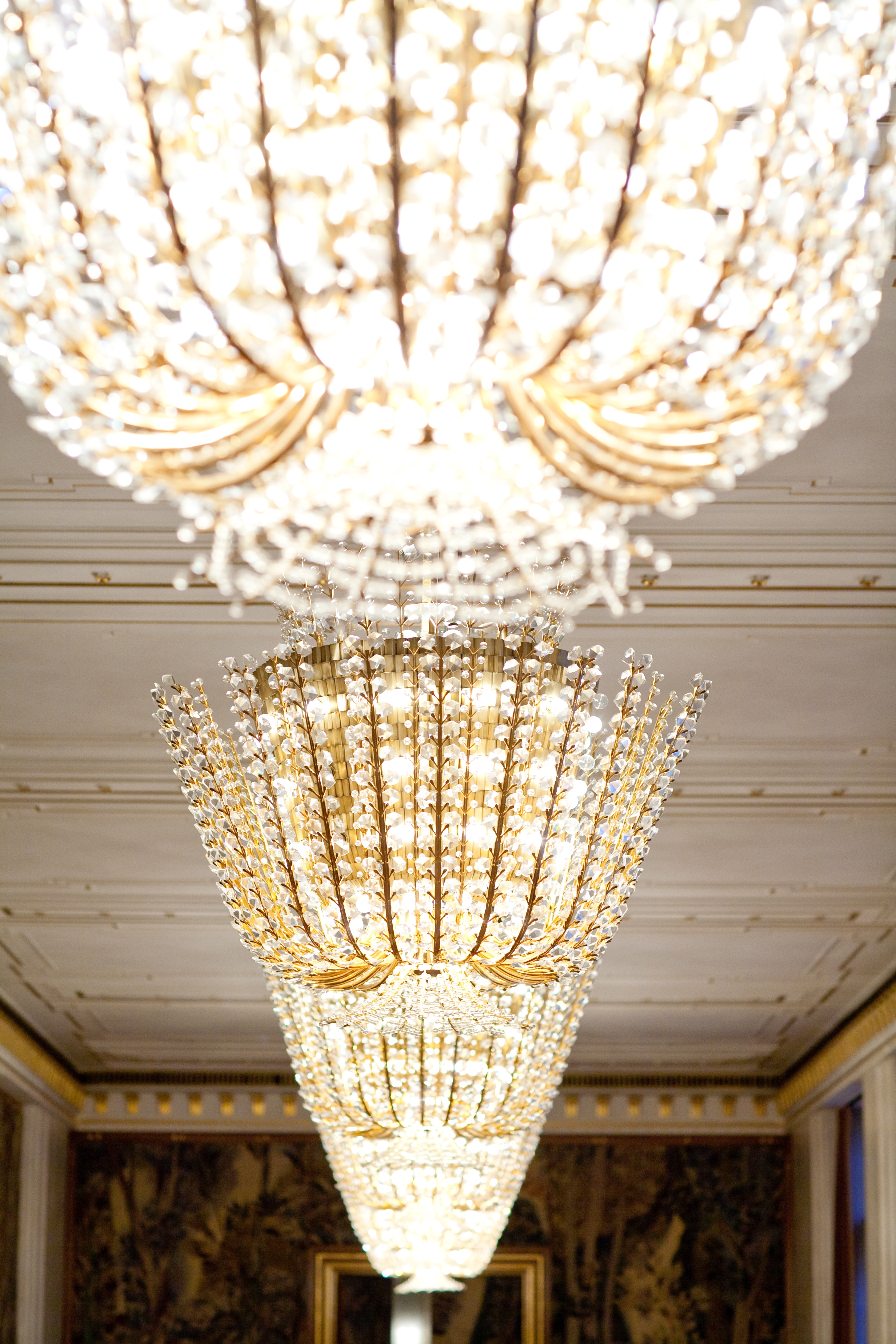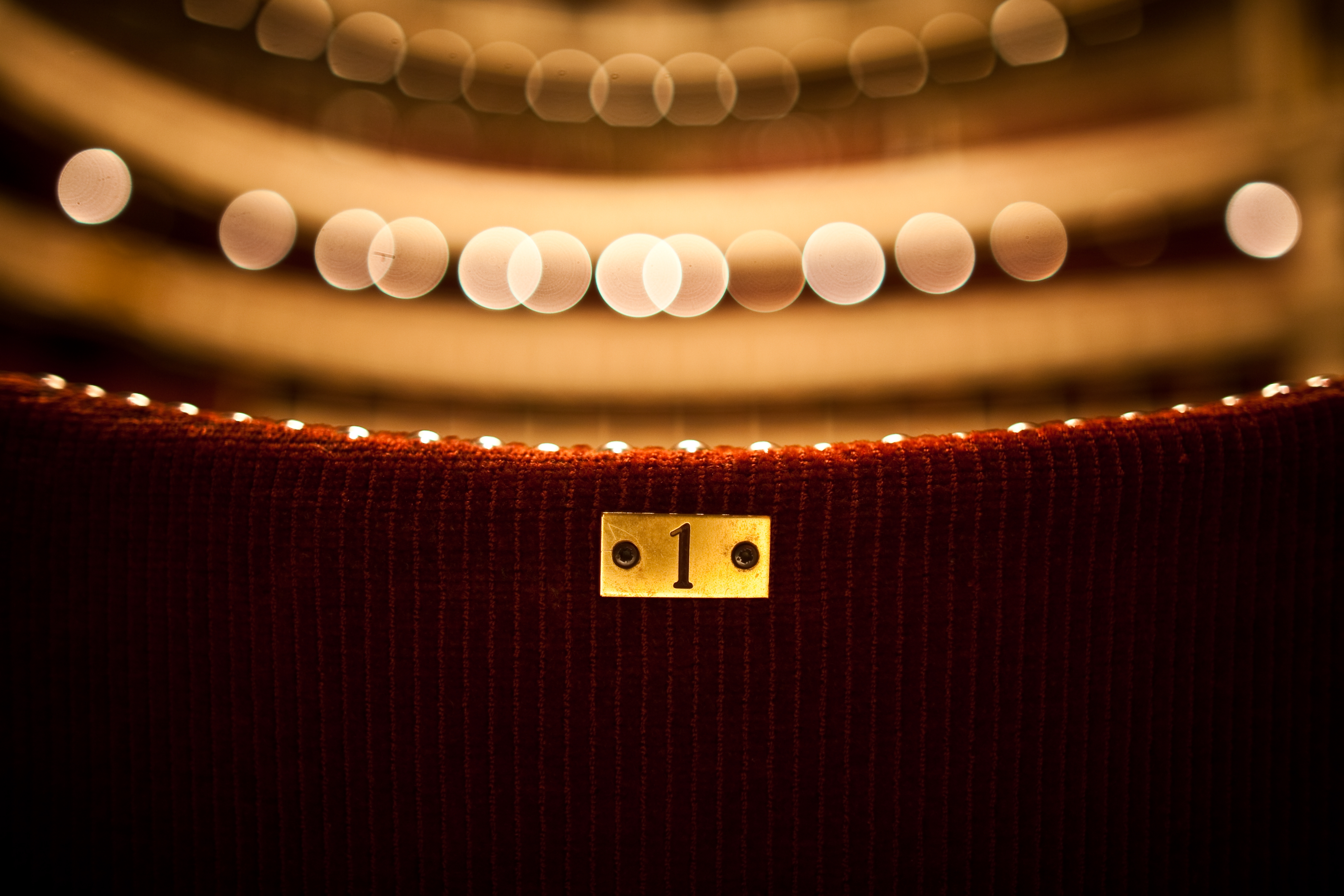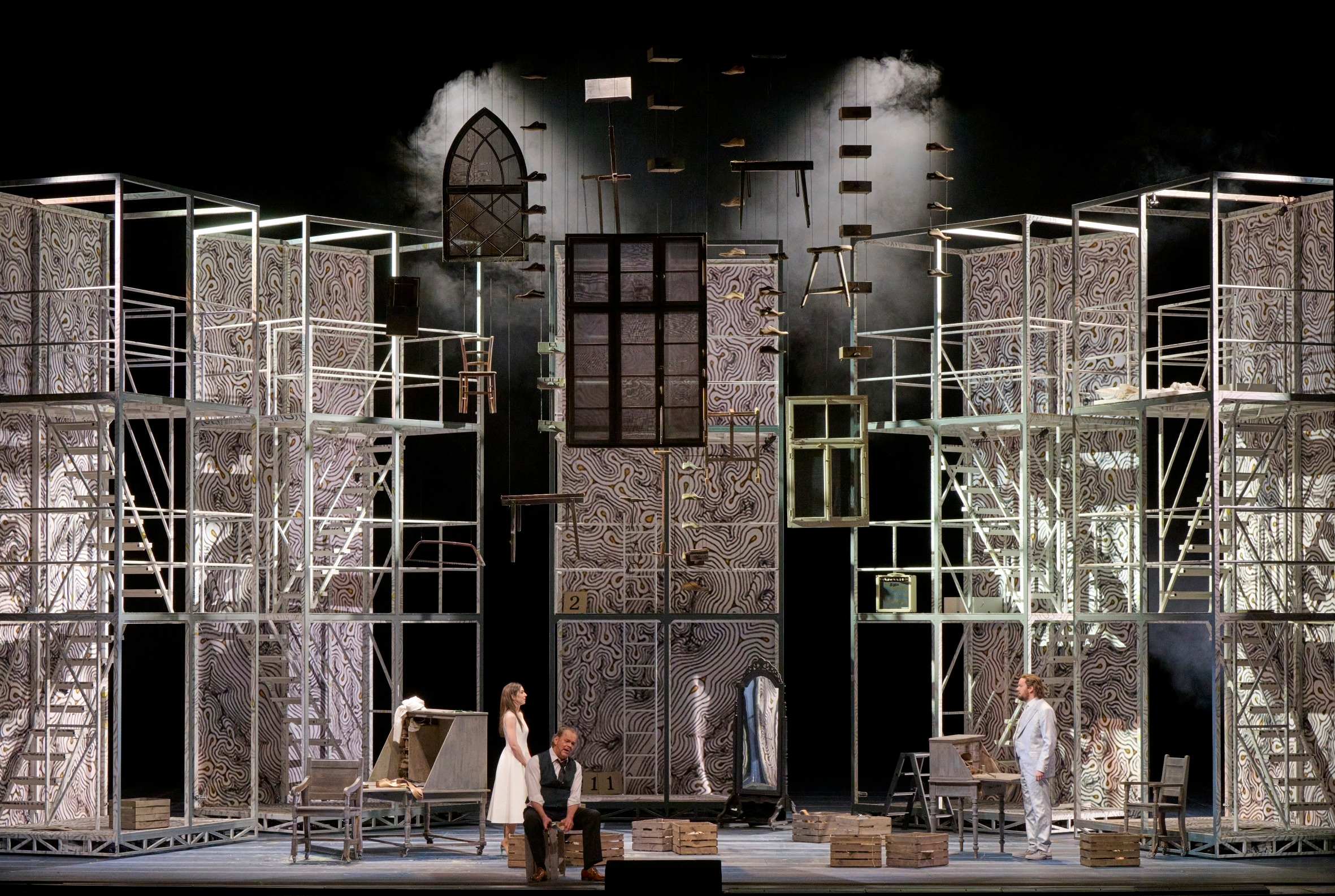
Short Summary
The plot tells the story of the young knight Walther von Stolzing, who courts the bourgeois Eva Pogner and - in order to obtain her father's permission to marry her - has to write a prize song in accordance with the rules of the Meistersinger.
The fact that the two lovers, Eva and Walther, finally come together and the young knight succeeds with his prize song is thanks to the (historically authenticated) cobbler and mastersinger Hans Sachs.
Die Meistersinger
von Nürnberg
Storyline
Closing hymn of a church service on the eve of the Feast of St. John. The knight Walther von Stolzing, who has come from Franconia, manages to ask Eva, the daughter of his host Veit Pogner, whether she is already a bride.
Walther is informed by Eva's nurse Magdalene: Eva's hand has been promised to the winner of the upcoming Meistersinger competition. Her father, the goldsmith Pogner, has decided this. Eva, of course, is already attracted to the Frankish knight. Walther decides to take part in the competition in order to win her love. During the preparations for a meeting of the masters, David, apprentice to the shoemaker Hans Sachs, describes the difficulties of tablature to the young knight.
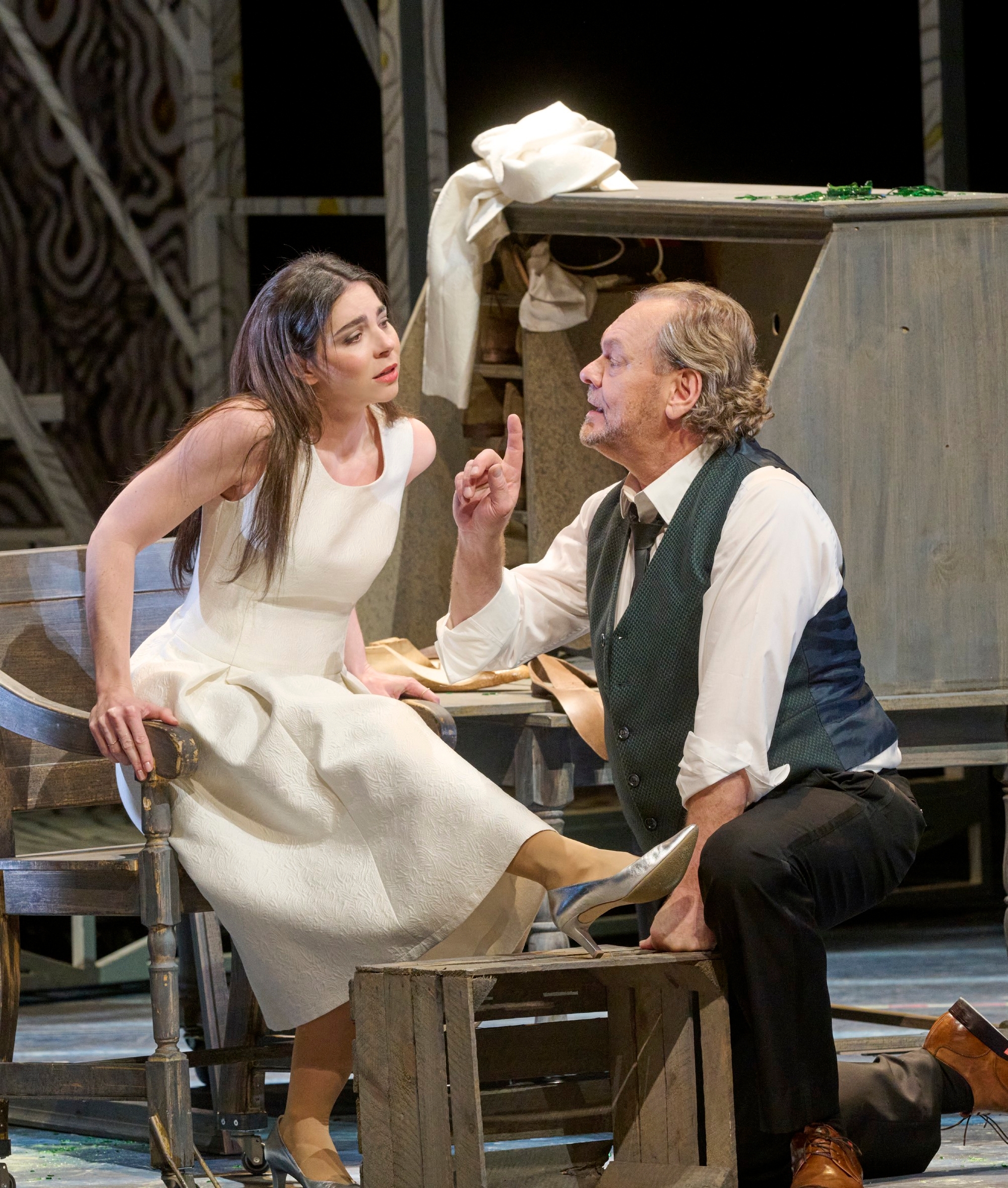
Stolzing is confused by the masters' complicated system of rules. Nevertheless, he dares to skip the prescribed steps to master level and become a master on the same day. Pogner now announces to the masters that he has chosen his daughter and his fortune as the prize in the singing competition and recommends that the knight Stolzing be allowed to take part.
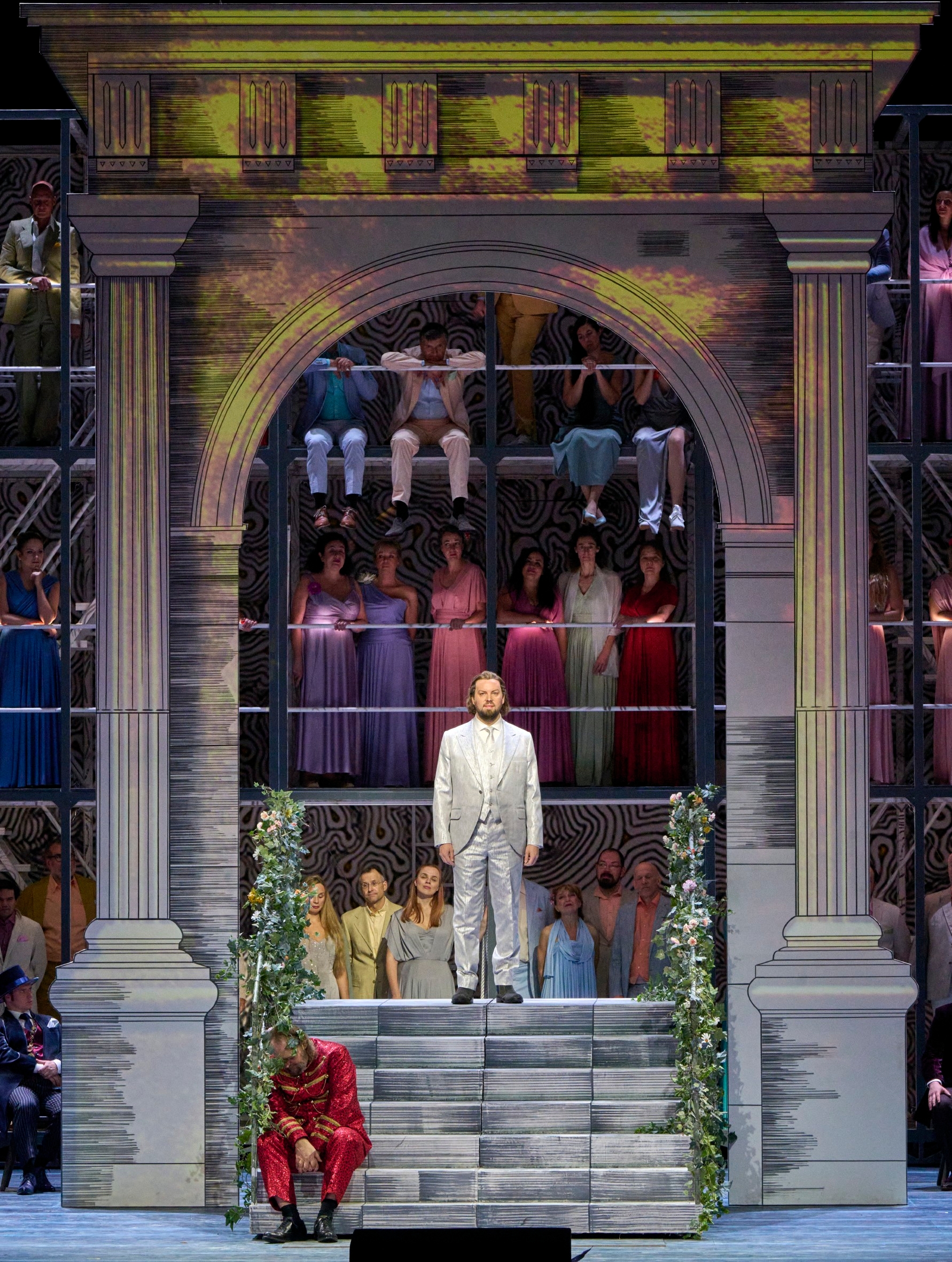
Sachs' suggestion that the people should also have a say in the singing contest is rejected, including by the town clerk Beckmesser, who has high hopes for Eva and initially suspects a rival in the popular Hans Sachs. However, his suspicions soon turn to Walther von Stolzing. During the rehearsal song that he is allowed to sing, Beckmesser emphatically assumes the role of »Merker«. Walther has performed his song without worrying about the master's rule. This makes it easy for Beckmesser to eliminate his presumed rival: The Junker has »sung his chance away and is utterly undone«. Only Hans Sachs recognizes the artistic value of Walther's song, which is unusual for the masters.
Magdalene learns from David, whom she has taken to her heart, that the knight Walther has failed his audition. Eva hears about this mishap through Magdalene.
Hans Sachs decides to continue working outside his house despite the evening hour. He reflects on the events of the day. Eva comes to him for advice and help. Probably to test her, Sachs now sides with the Meistersinger in Walther's affair. She reacts angrily and Sachs recognizes her true affection. Perhaps he himself would have been welcome as Eva's suitor, perhaps he too had once thought of asking Eva to marry him. But that is now over. Eva learns from Magdalene that Beckmesser wants to give her a serenade, but does not want to appear at the window under any circumstances. Magdalene is to arrange this in Eva's clothes. She herself now has a rendezvous with Walther, who, outraged by the Meistersinger, persuades her lover to flee with him. Sachs has overheard this plan. As he is well-disposed towards the two young people, he plans to prevent the ill-considered escape.
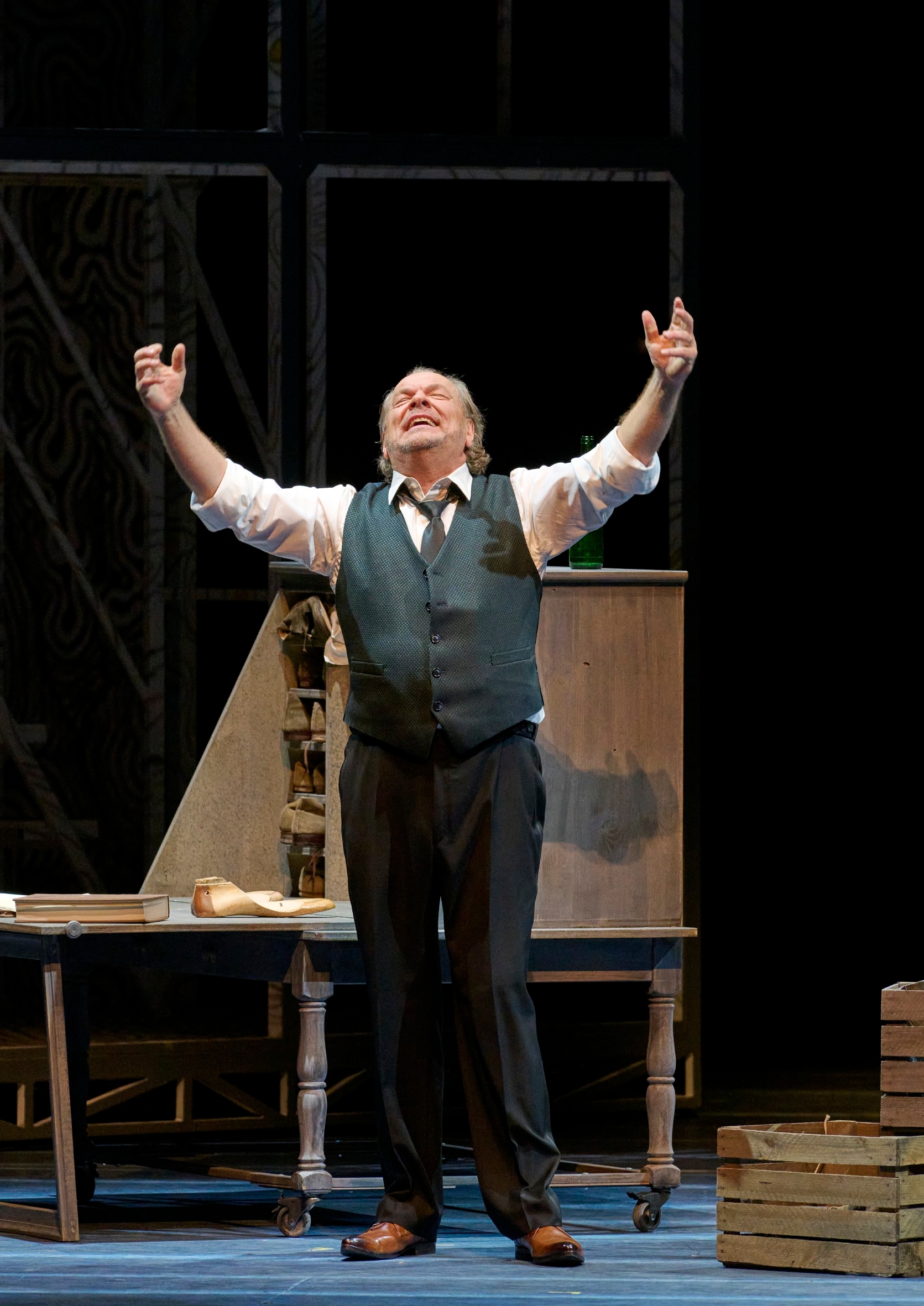
Beckmesser arrives and tries to sing his serenade. However, he is severely disturbed by Sachs. Just as Beckmesser marked Walther von Stolzing's mistakes against the rules with chalk strokes, Sachs, who is outside soling Beckmesser's shoes, now marks the town clerk's mistakes by hitting them with a hammer. David recognizes Magdalene, who is listening to this "serenade" in Eva's clothes. He jealously attacks Beckmesser, mistaking him for a rival. The l.rm attracts the neighbors and a general brawl ensues, in the course of which Sachs sends Eva to her father's house and takes the young knight into his own home.
Sachs ponders. He finds "madness" everywhere. David, who has a guilty conscience about the night's brawl, recites his saying on St. John's Day and congratulates the master on his name day.
Walther von Stolzing tells of a wondrous dream and puts it into verse on Sachs' advice. Sachs writes down two verses of the poem and leaves the sheet on the table. Beckmesser, deeply disturbed by the previous night's failure, secretly pockets the sheet, on which he believes he recognizes Sachs' entry for the prize singing competition. So that Beckmesser does not look like a thief, Sachs gives him the paper and swears never to claim authorship of the song. Beckmesser gains new hope of success at the prize singing competition. Eva comes to find out for sure. She receives it through the third verse of Walther's new song. Sachs baptizes Stolzing's prize song with the name "selige Morgentraum-Deutweise" according to the old mastersong custom. He then makes David a journeyman, which also makes Magdalene very happy.
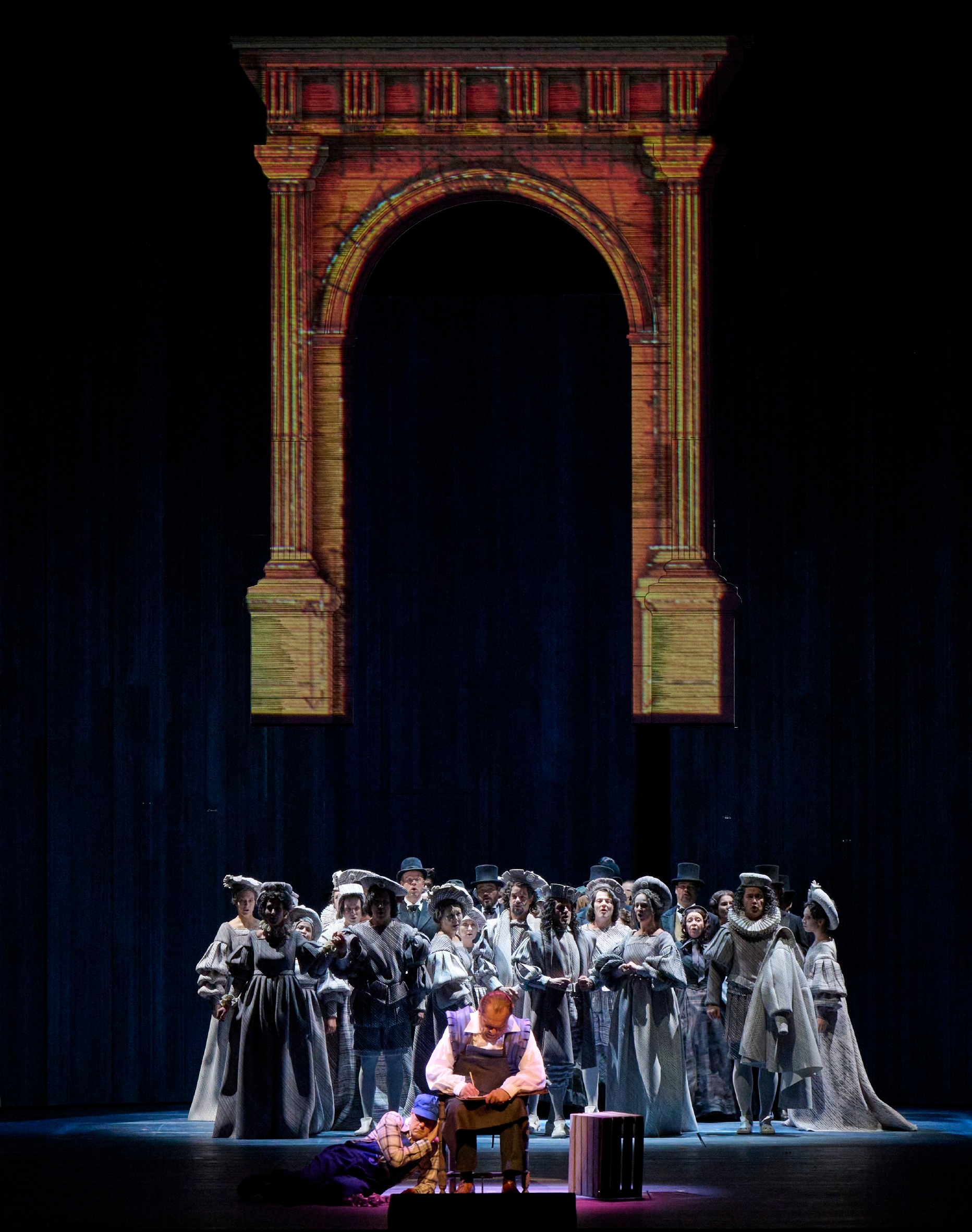
Hans Sachs is reverently received by the crowd. As the Meistersinger's spokesman, Sachs gives the oldest candidate, Beckmesser, priority in the singing contest. However, the town clerk makes a fool of himself with Walther's misunderstood, mutilated song. Furious, he names Hans Sachs as the author. The latter, however, calls out the true poet and singer and gives Walther the opportunity to prove himself worthy of the prize. The people cheer Stolzing. But he initially rejects the prize of the masters. Sachs explains to him the dignity and value, meaning and significance of art.
An important aspect of Keith Warner's production is the dream. Warner imagines Sachs' dream as a creative need, in the sense that he creates a story about his feelings. At the same time, he wanted this dreaming to be contagious. That those who allow themselves to be infected and have the necessary talent can create their own worlds, a kind of illusion. Suddenly Sachs begins to immerse himself in Walther's imagination, he wanders through his worlds and, conversely, Walther can access Sachs' worlds, and Eva also joins in. The relationship between reality and the artist's inner imagination or individual dream becomes fluid.
"But of course it is quite wrong to speak of a tonal about-turn by Wagner in the Meistersinger because of the diatonicism, chorale and fugue. When the lilac motif is heard in the horns in the "Lilac Monologue" and the strings play a tremolo sul ponticello - close to the bridge - Wagner even anticipates Impressionism in terms of tonal expression. The layering of fourths in the beating scene, on the other hand, is even reminiscent of Schoenberg's 1st Chamber Symphony and the use of the dominant seventh chord is a very original departure from the traditional tonal language of the time." (Philippe Jordan)
"This is about nothing less than the ever new and central question of the relationship, the ideal fusion of form and content on the one hand and the source of inspiration and idea on the other. Without structure, composition and transitions, the best ideas are known to remain loose in space; conversely, the clearest and most well thought-out form will never become a work of art if the idea is missing." (Philippe Jordan)
